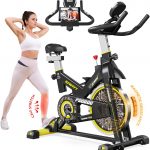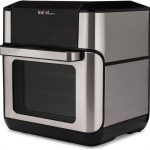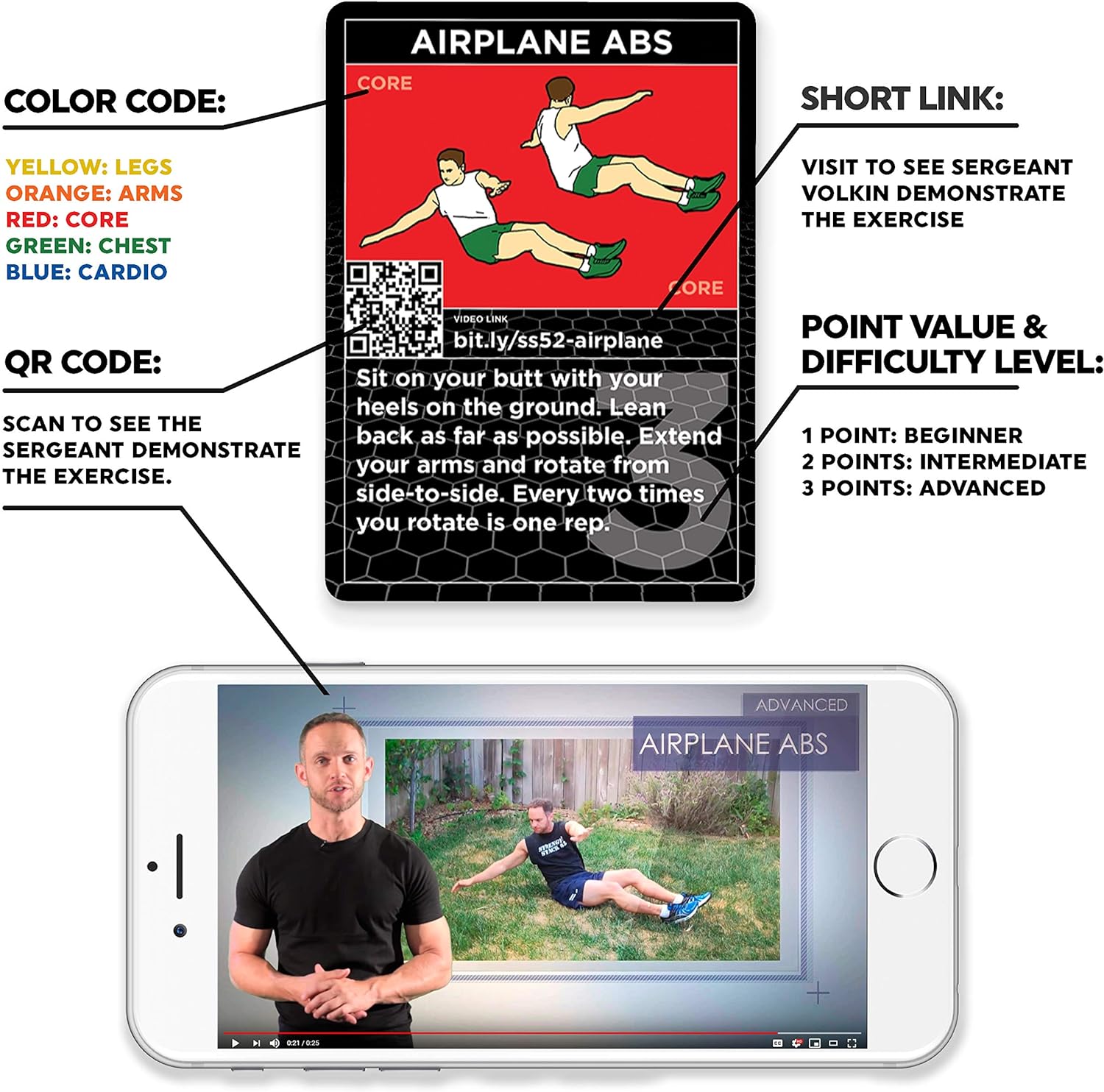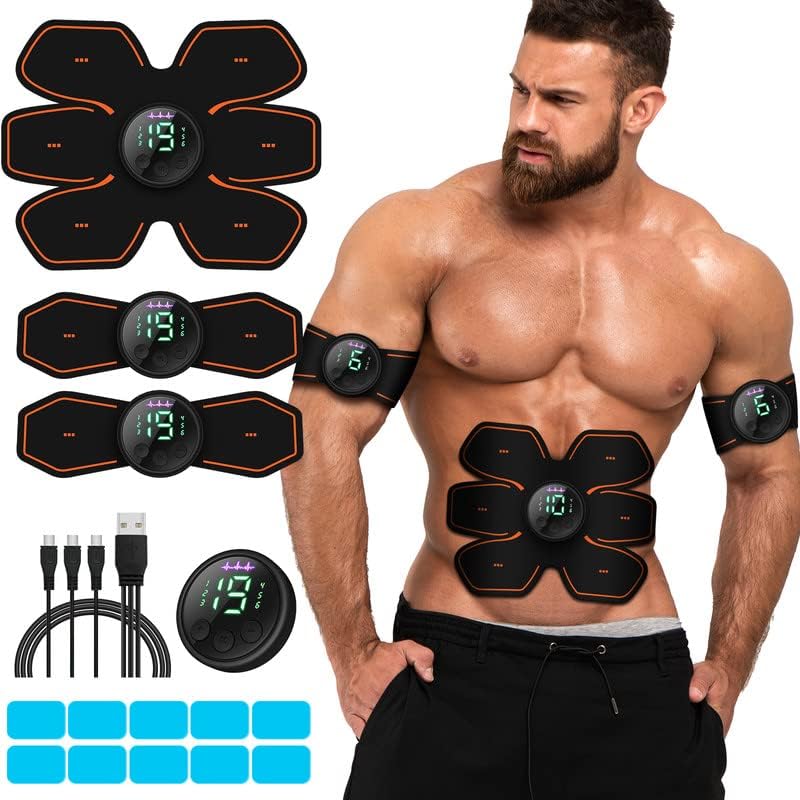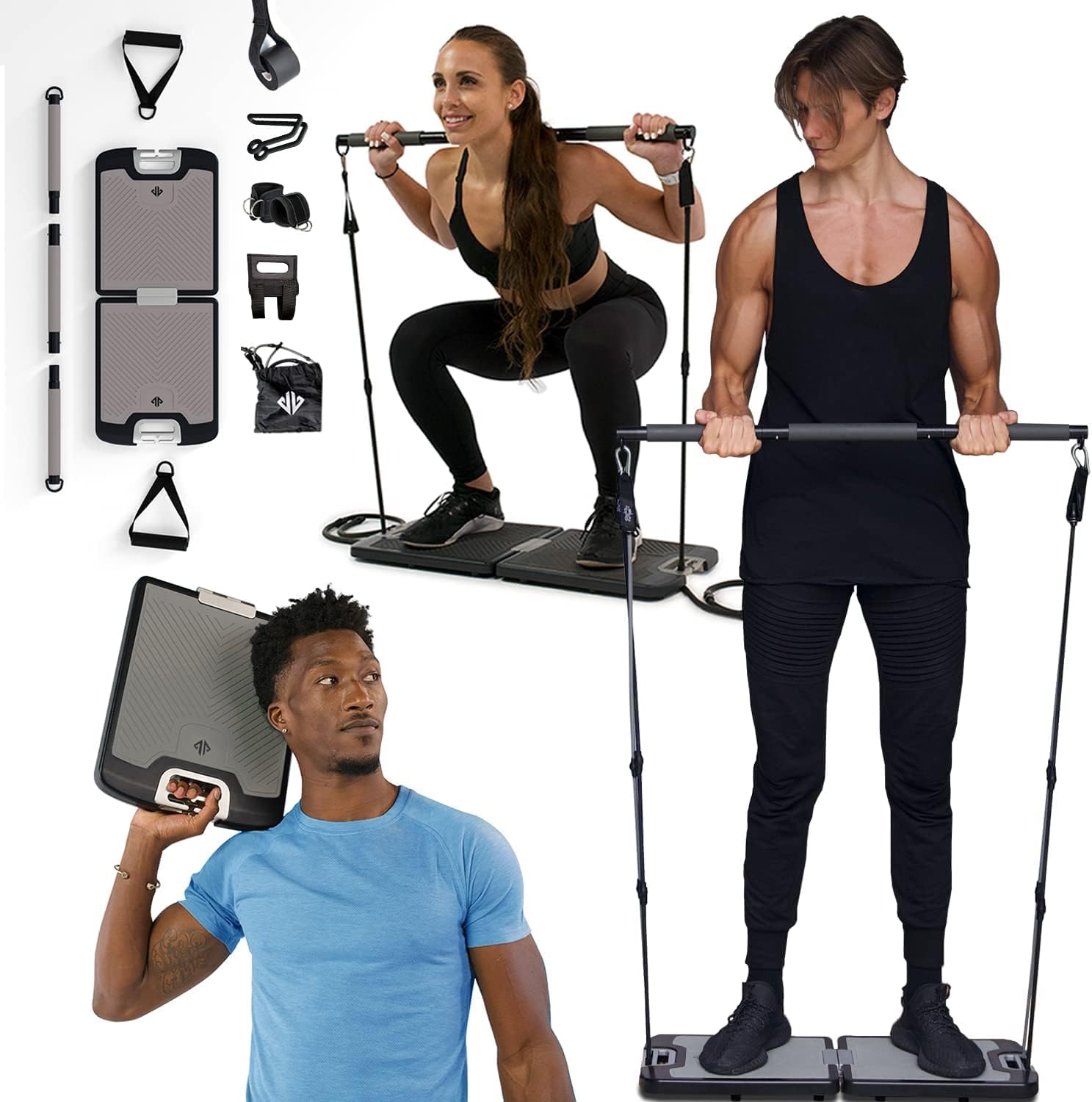Looking to take charge of your health and wellness? Look no further! In this article, we will introduce you to an exciting array of possibilities that will help you do just that. From vitamins and supplements to fitness equipment and mindfulness tools, there is something for everyone. We’ll also explore nutritional guides and holistic remedies that can take your well-being to new heights. And the best part? You can save money at a pharmacy near you with a free savings card. So get ready to dive into a world of possibilities and discover the tools to optimize your health and happiness.
Vitamins and Supplements
Vitamins and supplements play a crucial role in maintaining overall health and well-being. They can provide the necessary nutrients that may be lacking in your diet and support various bodily functions. There are different types of vitamins and supplements available, each with its unique set of benefits.
Types and Benefits
Vitamins are organic compounds that are essential for the proper functioning of your body. They help boost your immune system, support bone health, aid in digestion, and promote healthy hair, skin, and nails. Some common vitamins include vitamin C, vitamin D, vitamin E, and the B-complex vitamins.
Supplements, on the other hand, are products that contain one or more ingredients, such as minerals, herbs, or amino acids, that are intended to supplement your diet. They can have various benefits, such as improving joint health, enhancing cognitive function, or supporting cardiovascular health. Some popular supplements include omega-3 fatty acids, probiotics, and collagen.
Choosing the Right Vitamins and Supplements
When selecting vitamins and supplements, it is essential to consider your individual needs and goals. Start by identifying any nutritional deficiencies you may have, which can be determined through blood tests or consultations with a healthcare professional.
Next, research different brands and products to ensure their quality and reputation. Look for third-party certifications and read customer reviews to get an idea of their effectiveness. It is also important to check for any potential interactions or contraindications with other medications or health conditions you may have.
Top Brands in the Market
With a plethora of brands available in the market, it can be overwhelming to choose the right one. However, some top brands consistently deliver high-quality vitamins and supplements. These brands prioritize research, quality control, and transparency.
Some notable brands include Nature Made, Garden of Life, and NOW Foods. These brands offer a wide range of products, cater to various dietary needs, and have a strong commitment to sourcing high-quality ingredients.
Common Misconceptions
There are a few common misconceptions surrounding vitamins and supplements that need to be addressed. One such misconception is that taking more vitamins and supplements than recommended will lead to better health. However, excessive intake can have adverse effects on your body and may even be toxic.
It is crucial to follow the recommended dosage and consult with a healthcare professional if you have any concerns. Additionally, some people believe that vitamins and supplements can replace a healthy diet. While they can fill in nutritional gaps, it is still important to maintain a balanced and nutrient-rich diet.
Remember, vitamins and supplements should complement a healthy lifestyle and should not be solely relied upon for optimal health.
Fitness Equipment
Having the right fitness equipment can greatly enhance your workout routine and help you achieve your fitness goals. Whether you prefer strength training, cardio exercises, or flexibility and mobility workouts, there is a wide range of fitness equipment available to suit your needs.
Types of Fitness Equipment
Fitness equipment can be classified into different categories based on the type of exercise they facilitate. Some common types include cardio machines, weightlifting equipment, yoga and pilates accessories, and functional fitness tools.
Cardio machines, such as treadmills, stationary bikes, and ellipticals, are perfect for getting your heart rate up and improving cardiovascular endurance. Weightlifting equipment, including dumbbells, barbells, and weight machines, help build strength and muscle mass. Yoga mats, blocks, and straps are essential for practicing yoga and pilates, which focus on flexibility, balance, and core strength. Functional fitness tools, such as resistance bands, stability balls, and suspension trainers, target multiple muscle groups and improve overall body coordination.
Benefits of Having Fitness Equipment at Home
Having fitness equipment at home offers several benefits. It allows you to exercise at your convenience, saving you time and money on gym memberships. With equipment readily available, you can incorporate fitness into your daily routine without any excuses.
Home workouts also provide privacy and eliminate any self-consciousness you may feel when exercising in public. This can be particularly beneficial for beginners or those who prefer a more intimate workout environment.
Furthermore, having fitness equipment at home ensures continuity in your exercise routine, especially during inclement weather or busy schedules when going to the gym may not be feasible. You have the freedom to customize your workouts according to your preferences and fitness goals.
Choosing the Right Fitness Equipment
When selecting fitness equipment for your home, it is important to consider your fitness goals, available space, and budget. Assess your needs to determine what type of exercises you enjoy and what equipment will help you achieve those goals.
If you prefer cardio workouts, investing in a treadmill or stationary bike may be a good option. Those looking to build strength and muscle can consider purchasing dumbbells or resistance training equipment. If flexibility and stability are your focus, yoga mats and accessories would be beneficial.
Consider the available space in your home and ensure the equipment you choose fits comfortably. Additionally, set a budget that aligns with your financial goals and explore budget-friendly options to find equipment that suits your needs without breaking the bank.
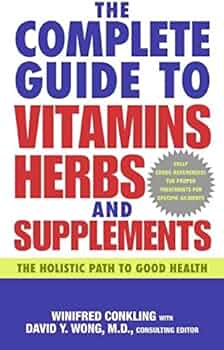
This image is property of Amazon.com.
Mindfulness Tools
In today’s fast-paced world, mindfulness tools have gained significant popularity as people search for ways to reduce stress, improve mental well-being, and cultivate a sense of calm. Mindfulness tools encompass various techniques and activities that help you stay present and centered in the moment.
Meditation Apps and Programs
Meditation is a practice that encourages deep relaxation and focus. Meditation apps and programs offer guided meditation sessions that can be accessed anytime, anywhere. These apps provide a range of meditation styles, from beginners’ sessions to specific themes like sleep meditation or stress relief.
Popular meditation apps include Headspace, Calm, and Insight Timer. These apps offer a user-friendly interface, provide different meditation lengths, and offer features like soothing music, nature sounds, and reminders to help you establish a consistent practice.
Breathing Techniques and Tools
Breathing techniques are an essential part of mindfulness practices, as they help regulate the nervous system and promote relaxation. Tools such as breathing apps, breathwork exercises, and breathing balls can assist in developing conscious breathing habits.
Breathing apps like Breathing Zone and Breathe2Relax provide guided breathing exercises to help you achieve a balanced and rhythmic breath. Breathwork exercises, such as diaphragmatic breathing or alternate nostril breathing, can be learned through online courses or with the guidance of a qualified instructor. Breathing balls, also known as stress balls, help improve focus and concentration while providing a tactile method to regulate breathing.
Mindfulness Games and Activities
Engaging in mindfulness games and activities can make the practice more enjoyable and interactive. These tools encourage mindfulness in everyday life by incorporating mindfulness principles into various tasks, such as eating, walking, or even engaging in hobbies.
Mindfulness games like “Mindful Chess” or “Mindful Jenga” combine strategy with present-moment awareness, promoting concentration and mental clarity. Mindful coloring books provide a creative outlet while promoting relaxation and focus. Mindful eating exercises involve savoring each bite, paying attention to flavors and textures, and cultivating a sense of gratitude for food.
Benefits of Practicing Mindfulness
Practicing mindfulness offers numerous benefits for mental and emotional well-being. Regular mindfulness practice has been shown to reduce stress, anxiety, and depression, while improving focus, memory, and overall cognitive function.
Mindfulness can also enhance self-awareness and promote a greater sense of compassion and empathy toward oneself and others. It encourages individuals to be fully present in their experiences, fostering a deeper connection with the world around them.
By incorporating mindfulness tools into your daily routine, you can cultivate a greater sense of peace, manage stress more effectively, and enhance your overall quality of life.
Nutritional Guides and Meal Plans
Eating a balanced and nutrient-rich diet is essential for maintaining good health and achieving your health goals. Nutritional guides and meal plans provide valuable information and structure to help you make informed food choices and create meals that meet your dietary needs.
Creating a Balanced and Nutrient-Rich Meal Plan
A balanced and nutrient-rich meal plan should include a variety of whole foods from different food groups, ensuring you receive all the essential macronutrients (carbohydrates, proteins, and fats) and micronutrients (vitamins and minerals) your body needs.
When creating a meal plan, consider incorporating fruits, vegetables, lean proteins, whole grains, and healthy fats. Aim for a colorful plate to ensure a diverse range of nutrients. Focus on portion control and listen to your body’s hunger and fullness cues.
Understanding Macronutrients and Micronutrients
Macronutrients are the nutrients your body requires in larger amounts to provide energy and support essential bodily functions. Carbohydrates provide energy, proteins build and repair tissues, and fats help with hormone production and nutrient absorption.
Micronutrients, such as vitamins and minerals, are needed in smaller quantities but are crucial for various bodily processes. They play essential roles in cognitive function, energy production, immune support, and many other functions.
Educate yourself about the different macronutrients and micronutrients and the foods that provide them. Incorporating a variety of nutrient-dense foods into your meal plan will help ensure you’re meeting your nutritional needs.
Meal Planning for Different Dietary Needs
Meal planning becomes even more important when you have specific dietary needs or restrictions. Whether you follow a vegetarian or vegan diet, have food allergies or intolerances, or have specific health conditions, meal planning can help you navigate ingredient choices and ensure you’re meeting your nutritional requirements.
Consider consulting with a registered dietitian or nutritionist who can provide personalized guidance based on your unique needs. They can help you create meal plans that accommodate your dietary restrictions while ensuring you’re receiving adequate nutrition.
Meal Prep Tips and Tricks
Meal prepping can significantly simplify your life and make healthy eating more convenient. By preparing meals and snacks in advance, you can save time, reduce stress, and prevent impulsive food choices.
Start by choosing a specific day of the week for meal prepping. Plan your meals, make a list of ingredients, and batch cook staple items such as grains, proteins, and vegetables. Invest in meal prep containers for portioning out meals and snacks.
Remember to incorporate variety into your prepped meals and experiment with different flavors and cuisines. Keep the meals organized in your refrigerator or freezer for easy access throughout the week. By dedicating a few hours to meal prepping, you can set yourself up for success and stay on track with your nutritional goals.
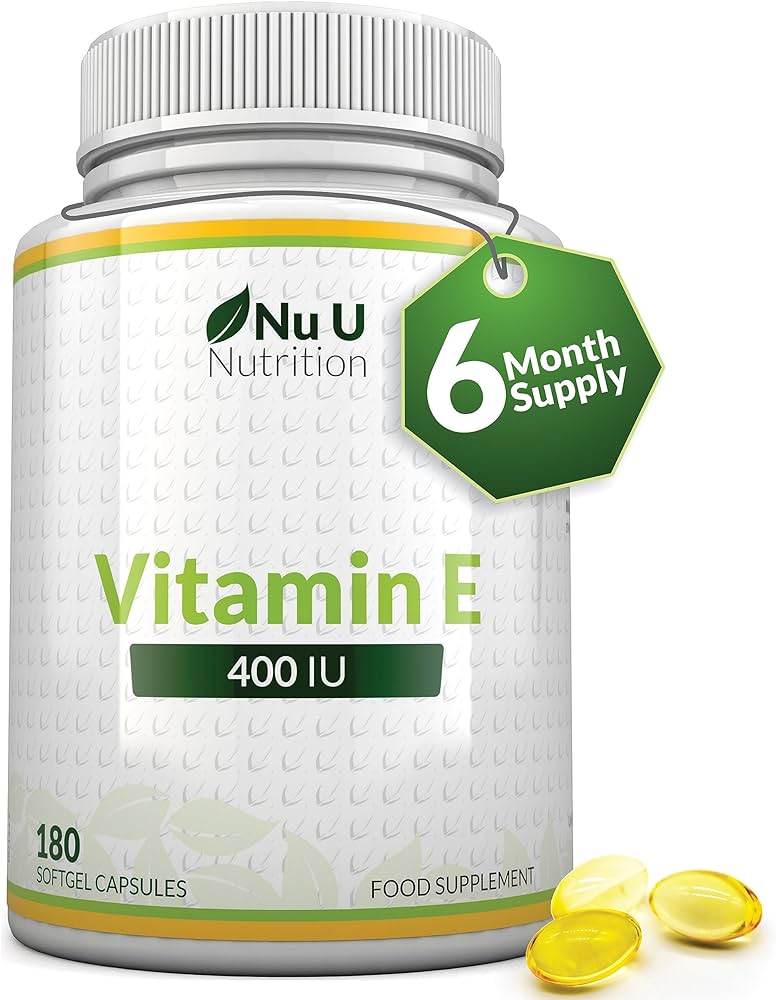
This image is property of Amazon.com.
Holistic Remedies
Holistic remedies are a category of treatments that focus on the overall well-being of an individual, considering the interconnectedness of mind, body, and spirit. They emphasize natural, non-invasive approaches to promote health and healing.
Natural Remedies for Common Ailments
Natural remedies have been used for centuries to address common ailments and promote well-being. These remedies harness the healing properties of plants, herbs, and other natural substances to support the body’s innate ability to heal itself.
For example, ginger is known for its anti-inflammatory properties and can help with nausea and digestion. Eucalyptus essential oil is often used for respiratory issues, while lavender oil promotes relaxation and can aid in sleep. Many natural remedies can be incorporated into everyday life as teas, tinctures, or topical applications.
Traditional Healing Practices
Traditional healing practices are deeply rooted in cultural and historical contexts. They encompass a range of approaches, such as Traditional Chinese Medicine (TCM), Ayurveda, and Native American healing traditions.
TCM focuses on balancing the flow of energy, or qi, in the body through acupuncture, herbal medicine, and dietary therapies. Ayurveda, originating from India, emphasizes the balance of mind, body, and spirit through practices such as yoga, meditation, and herbal remedies. Native American healing traditions incorporate ceremonial practices, herbal medicine, and spiritual rituals to promote overall well-being.
Alternative Medicine Approaches
Alternative medicine refers to practices that are not part of conventional Western medicine. These approaches often prioritize holistic well-being and aim to address the root causes of health concerns rather than merely treating symptoms.
Alternative medicine encompasses a broad range of practices, including homeopathy, naturopathy, and energy healing. Homeopathy uses highly diluted substances to stimulate the body’s healing response. Naturopathy emphasizes natural therapies and lifestyle changes to restore health and prevent disease. Energy healing modalities, such as Reiki or acupuncture, aim to restore energetic balance within the body.
Understanding the Placebo Effect
The placebo effect is a fascinating phenomenon wherein a person experiences a therapeutic benefit from an inert substance or treatment due to their belief in its effectiveness. Although placebos do not have any direct physiological effects, they can elicit a positive response in some individuals.
Understanding the placebo effect is important when considering holistic remedies. While some treatments may not have scientifically proven effects, they may still provide subjective benefits due to the placebo effect. It is essential to approach holistic remedies with an open mind, recognizing both potential benefits and limitations.
The Role of Vitamins and Supplements in Fitness
Vitamins and supplements can play a significant role in supporting fitness goals by providing the necessary nutrients to enhance performance, aid in recovery, and promote overall well-being.
Supplements for Muscle Building and Recovery
Supplements such as protein powders, creatine, and branched-chain amino acids (BCAAs) are commonly used to support muscle building and recovery in fitness enthusiasts. Protein powders provide a convenient source of protein, which is vital for muscle repair and growth. Creatine can improve strength and power output during high-intensity workouts. BCAAs help reduce muscle breakdown, decrease exercise-induced fatigue, and enhance recovery.
It is important to note that while these supplements can be beneficial, they should not replace a balanced diet. Consulting with a healthcare professional or a registered dietitian can help determine the appropriate dosage and ensure you’re using supplements safely and effectively.
Vitamins for Energy and Endurance
Certain vitamins play a crucial role in energy production and endurance during physical activity. Vitamin B12 is needed for red blood cell production and can help combat fatigue. Iron is essential for oxygen transport and energy metabolism. Vitamin D is involved in muscle function and strength.
While vitamins can be obtained through a balanced diet, individuals with limited sun exposure or specific dietary restrictions may benefit from supplementation. It is recommended to have your vitamin levels tested and consult with a healthcare professional to determine your specific needs.
Finding the Right Balance in Your Supplement Routine
Finding the right balance in your supplement routine is key to optimizing your results and avoiding potential harms. It is important to prioritize a nutrient-rich diet as the foundation of your health and fitness journey. Supplements should be used to complement a healthy lifestyle, not substitute for it.
Ensure you understand the purpose, dosage, and potential side effects of any supplement you consider adding to your routine. Experiment with different products to find what works best for your body and goals. Remember, individual needs vary, so consulting with a healthcare professional or registered dietitian can provide personalized guidance.
Consulting with a Healthcare Professional
To make the most informed decisions about vitamins and supplements, it is advisable to consult with a healthcare professional. They can assess your individual needs, evaluate any potential interactions with medications or health conditions, and provide guidance on safe and effective supplementation.
A healthcare professional can also help monitor your progress, make adjustments to your supplement routine, and ensure you’re on track to achieving your fitness goals. Their expertise and guidance will help you navigate the vast array of options and make choices that align with your overall health and well-being.
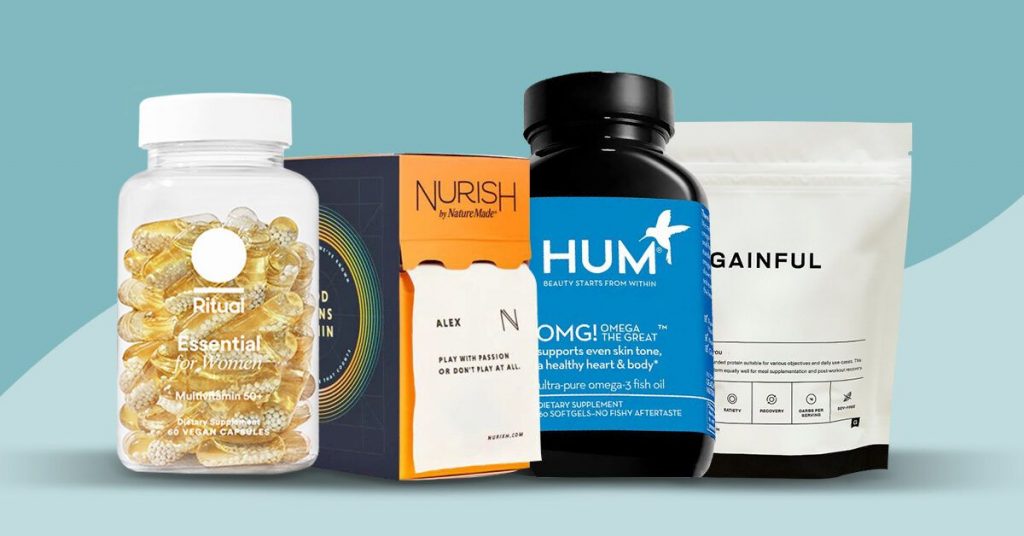
This image is property of media.post.rvohealth.io.
Must-Have Fitness Equipment for a Home Gym
Creating a home gym allows you to exercise conveniently and consistently. Having the right fitness equipment at home can provide you with a comprehensive workout routine, regardless of your fitness goals or preferences.
Treadmills and Cardio Machines
For individuals who enjoy cardiovascular exercises, treadmills and cardio machines are a must-have in a home gym. Treadmills offer the convenience of walking, jogging, or running indoors, regardless of the weather. Ellipticals and stationary bikes provide low-impact cardio workouts that are gentle on the joints.
Having a variety of cardio machines allows you to switch up your routine and target different muscle groups. Additionally, many cardio machines offer programmable workouts and various resistance levels to challenge your fitness level.
Weightlifting Equipment and Accessories
Weightlifting is crucial for building strength, increasing muscle mass, and improving overall body composition. Having weightlifting equipment at home allows you to perform exercises like squats, deadlifts, and bench presses without needing a gym membership.
Some essential weightlifting equipment includes dumbbells or adjustable dumbbells, barbells and plates, and a weight bench. Resistance bands and kettlebells are also versatile tools that can be used for both strength training and cardiovascular workouts.
Yoga and Pilates Equipment
Yoga and Pilates are excellent practices for improving flexibility, balance, and core strength. Having the necessary equipment at home can facilitate these workouts and make them more enjoyable.
Yoga mats provide comfort and stability during yoga sessions, while yoga blocks and straps assist in achieving proper alignment and stretching. Pilates equipment, such as a Pilates reformer or stability ball, allows you to perform a wide range of exercises that target different muscle groups and improve overall body strength.
Functional Fitness Tools
Functional fitness exercises focus on movements that mimic everyday activities, enhancing your ability to perform daily tasks with ease and reducing the risk of injuries. Incorporating functional fitness tools into your home gym can help optimize your workouts.
Some essential functional fitness tools include resistance bands, stability balls, foam rollers, and suspension trainers. These tools engage multiple muscle groups and improve stability, flexibility, and overall functional strength.
When setting up a home gym, consider your fitness preferences, available space, and budget. Start with a few key pieces of equipment and gradually expand based on your needs and goals. Remember to prioritize safety and proper form when using any fitness equipment.
Mindfulness Tools for Stress Relief and Mental Well-being
In our fast-paced and often stressful lives, incorporating mindfulness tools into our daily routines can help promote stress relief, mental well-being, and overall happiness.
Meditation Apps for Beginners
Meditation is a powerful tool for calming the mind, reducing stress, and promoting mental clarity. For beginners, meditation apps offer guidance and support to develop a consistent practice.
Apps like Headspace and Calm provide guided meditation sessions suitable for beginners. They offer various meditation styles, including mindfulness, loving-kindness, and body scan meditations. These apps can help you establish a routine, track your progress, and provide insights and tips for enhancing your meditation practice.
Journaling and Reflective Practices
Journaling and reflective practices encourage self-reflection and introspection. They provide a safe space to express emotions, set intentions, and track personal growth.
Consider starting a gratitude journal, where you write down things you are grateful for each day. This practice cultivates a positive mindset and shifts your focus toward the good things in life. Reflective prompts or guided journaling apps can also guide you through self-exploration and help you gain clarity on your thoughts and emotions.
Breathing Exercises for Anxiety
Breathing exercises are simple yet powerful tools to manage anxiety and promote relaxation. They help calm the nervous system, reduce stress hormones, and restore a sense of balance.
Diaphragmatic breathing, also known as “belly breathing,” is a deep breathing technique that focuses on the expansion of the diaphragm. It promotes relaxation and can be practiced anywhere. Box breathing, alternate nostril breathing, and 4-7-8 breathing are other popular techniques that help regulate the breath and induce a state of calm.
Mindfulness Techniques for Better Sleep
Quality sleep is crucial for overall well-being and mental clarity. Mindfulness techniques can help quiet the mind, reduce racing thoughts, and promote better sleep.
Practices such as body scans, progressive muscle relaxation, and guided imagery can help relax the body and prepare it for restful sleep. Mindful bedtime routines, such as turning off electronic devices and creating a calming environment, can also support a peaceful and rejuvenating sleep experience.
Incorporating mindfulness tools into your daily routine can have a profound impact on your mental well-being. Explore different techniques and find what resonates with you, practicing consistently to reap the full benefits.
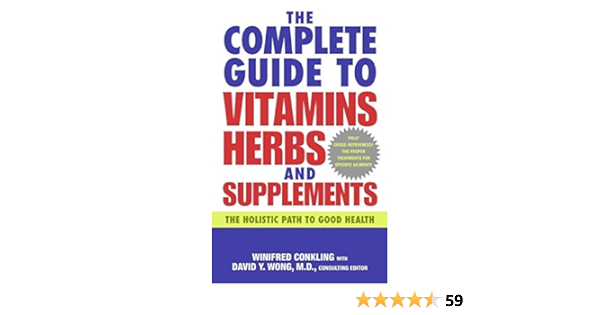
This image is property of Amazon.com.
The Importance of Nutritional Guides in Achieving Health Goals
Nutritional guides provide valuable information and structure to help individuals make informed food choices and achieve their health goals. They offer guidelines for creating balanced and sustainable meal plans that promote overall health and well-being.
Creating a Sustainable and Balanced Diet Plan
A sustainable and balanced diet plan is based on consuming a variety of nutrient-dense foods from all food groups in appropriate portions. It emphasizes whole foods, such as fruits, vegetables, whole grains, lean proteins, and healthy fats, while limiting processed foods, added sugars, and unhealthy fats.
Consider portion control and listening to your body’s hunger and fullness cues. Prioritize proper hydration and incorporate foods that provide a wide range of vitamins, minerals, and antioxidants. Strive for sustainability by choosing foods that align with your values, support local farmers, and have minimal impact on the environment.
Understanding Food Labels and Ingredients
Understanding food labels and ingredients is essential for making informed food choices. Food labels provide detailed information about the nutritional content, serving sizes, and ingredients of packaged foods.
Familiarize yourself with the different sections of a food label, such as the serving size, calorie count, and percentages of daily values for nutrients. Pay attention to the ingredient list and be mindful of potentially harmful additives, preservatives, and artificial sweeteners.
If you have specific dietary restrictions or health concerns, reading food labels becomes even more important. Look for labels that indicate whether a product is gluten-free, dairy-free, or suitable for specific dietary needs.
Meal Planning for Weight Loss or Gain
Meal planning can be particularly beneficial for individuals looking to lose or gain weight. By thoughtfully planning meals and snacks, you can ensure you’re consuming the right balance of macronutrients and controlling your calorie intake.
For weight loss, focus on creating a calorie deficit by consuming nutrient-dense, low-calorie foods. Incorporate regular physical activity, such as cardiovascular exercises and strength training, to support weight loss goals.
For weight gain, aim to consume a surplus of calories by incorporating calorie-dense foods and increasing portion sizes. Combine strength training exercises with adequate protein intake to support muscle growth and healthy weight gain.
Tailoring Nutritional Guides for Dietary Restrictions
Nutritional guides should be tailored to accommodate different dietary restrictions, food allergies, or intolerances. With proper planning and awareness, individuals with specific dietary needs can still enjoy a balanced and nutritious diet.
If you have dietary restrictions, identify alternative sources of nutrients that may be lacking in your diet. For example, plant-based eaters can ensure they meet protein requirements through plant-based protein sources such as legumes, tofu, and tempeh. Individuals with gluten intolerance can opt for gluten-free grains like quinoa, rice, and oats.
Consult with a registered dietitian or nutritionist who specializes in your specific dietary needs and can provide personalized guidance. They can help you identify suitable alternatives, ensure you’re meeting nutritional requirements, and explore creative meal ideas.
Exploring Holistic Remedies: Traditional and Alternative Approaches
Holistic remedies encompass traditional and alternative approaches to health and healing. They focus on addressing the root causes of health concerns, considering the individual as a whole and promoting balance across mind, body, and spirit.
Herbal Remedies and Supplements
Herbal remedies have been used for centuries to treat various ailments and promote overall well-being. Plants and herbs possess natural healing properties and can be used in the form of teas, capsules, tinctures, or topical applications.
Some common herbal remedies include chamomile for relaxation and sleep, ginger for digestion, and echinacea for immune support. However, it is important to gather accurate information and consult with a healthcare professional before incorporating herbal remedies into your routine, as they can interact with medications or have contraindications for certain health conditions.
Acupuncture and Traditional Chinese Medicine
Acupuncture is a key component of Traditional Chinese Medicine (TCM) and involves the insertion of fine needles into specific points on the body. It aims to restore the flow of energy, or qi, in the body, promoting balance, and supporting the body’s natural healing processes.
TCM encompasses a holistic approach to health, incorporating various practices such as acupuncture, herbal medicine, dietary therapy, and mind-body exercises like tai chi and qigong. This traditional approach can be a valuable complement to conventional medicine and can address a wide range of health concerns.
Ayurvedic Practices and Holistic Health
Ayurveda, originating from ancient India, is a holistic system of medicine that focuses on achieving balance and harmony within the body. It recognizes the interconnectedness of physical, mental, and spiritual well-being.
Ayurvedic practices include dietary recommendations, herbal remedies, yoga, meditation, and lifestyle modifications to support overall health and treat imbalances. Each individual is considered unique, and treatment is personalized based on their dominant dosha, or body type.
Exploring Ayurvedic practices can provide insight into optimizing your well-being and identifying imbalances that may be contributing to health concerns. However, it is important to consult with an Ayurvedic practitioner who can provide tailored recommendations and ensure the safety and effectiveness of treatments.
The Science Behind Holistic Remedies
Holistic remedies are often approached with skepticism due to the lack of scientific evidence and standardized protocols. However, scientific curiosity and research are increasingly exploring the mechanisms behind these practices.
Studies have started unveiling the physiological effects of practices such as meditation, acupuncture, and herbal remedies. For example, research has shown that meditation can reduce stress, improve brain function, and promote emotional well-being. Acupuncture has been found to influence the release of endorphins and regulate pain perception.
While further research is still needed to fully understand the mechanisms behind holistic remedies, growing scientific evidence supports their efficacy and benefits. It is important to approach these remedies with an open mind and seek guidance from qualified practitioners who can provide evidence-based recommendations.
In conclusion, exploring the world of vitamins, supplements, fitness equipment, mindfulness tools, nutritional guides, and holistic remedies provides a vast array of possibilities for enhancing your overall health and well-being. By understanding the different types and benefits of each category, choosing the right options, and seeking informed guidance, you can embark on a journey towards a healthier and more fulfilling lifestyle. Remember, it’s important to listen to your body, consult with healthcare professionals when necessary, and enjoy the process of discovering what works best for you.
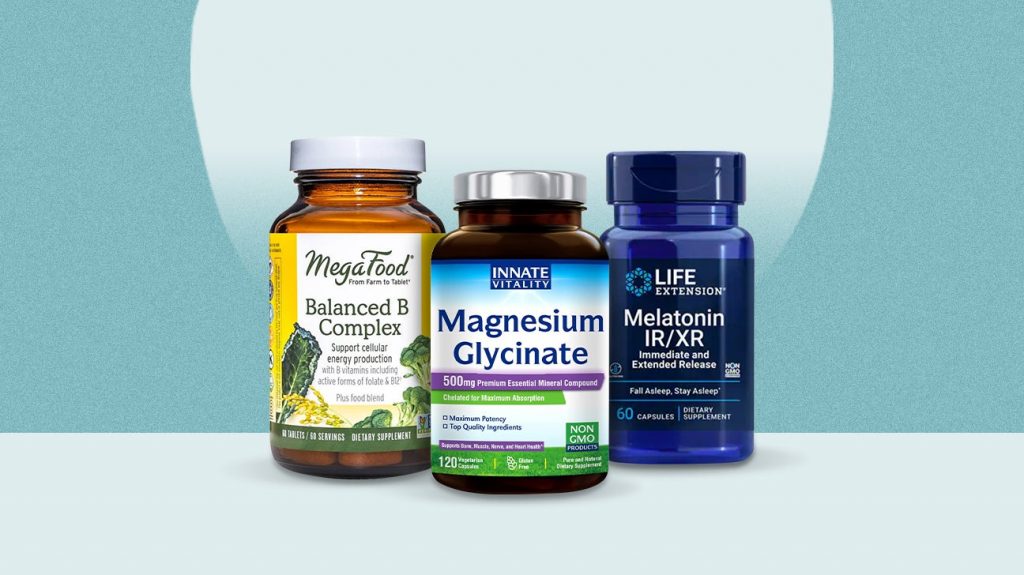
This image is property of post.healthline.com.

